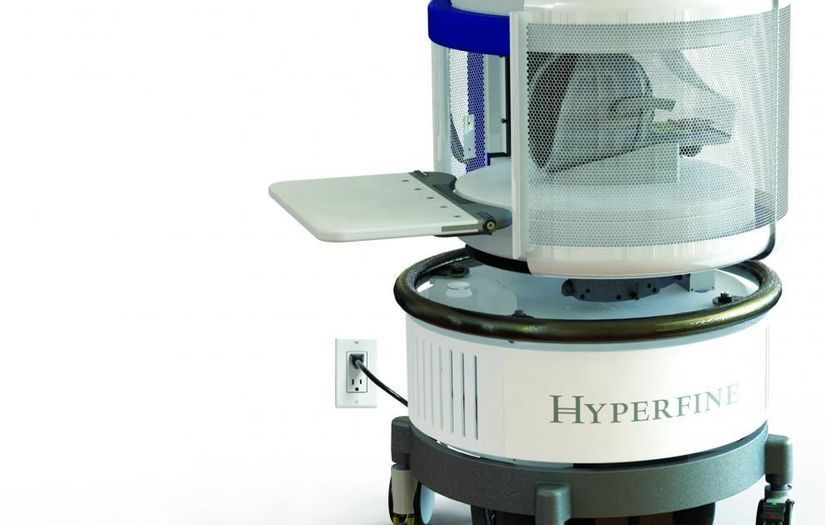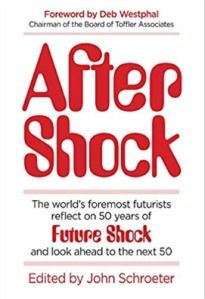Betelgeuse has been acting strangely, but don’t expect any fireworks in the next 100,000 years; rumors of a pending supernova have all been overhyped.




Moving ever closer to the Web v.5.0 – an immersive virtual playground of the Metaverse – would signify a paramount convergent moment that MIT’s Rizwan Virk calls ‘The Simulation Point’ and I prefer to call the ‘Simulation Singularity’. Those future virtual worlds could be wholly devised and “fine-tuned” with a possibility to encode different sets of “physical laws and constants” for our enjoyment and exploration.
We are in the “kindergarten of godlings” right now. One could easily envision that with exponential development of AI-powered multisensory immersive technologies, by the mid-2030s most of us could immerse in “real virtualities” akin to lifestyles of today’s billionaires. Give it another couple of decades, each of us might opt to create and run their own virtual universe with [simulated] physics indistinguishable from the physics of our world. Or, you can always “fine-tune” the rule set, or tweak historical scenarios at will.
How can we be so certain about the Simulation Singularity circa 2035? By our very nature, we humans are linear thinkers. We evolved to estimate a distance from the predator or to the prey, and advanced mathematics is only a recent evolutionary addition. This is why it’s so difficult even for a modern man to grasp the power of exponentials. 40 steps in linear progression is just 40 steps away; 40 steps in exponential progression is a cool trillion (with a T) – it will take you 3 times from Earth to the Sun and back to Earth.
This illustrates the power of exponential growth and this is how the progress in information and communication technologies is now literally exploding – by double-improving price-to-performance ratio roughly once a year. This is why you can see memory cards jumping regularly from 32MB to 64MB, then to 128MB, 256MB and 512MB. This is why your smartphone is as capable as a supercomputer 25 years ago. This is why telecommunication carriers are actively deploying 5G wireless networks, as you read this article.

At some point in their life almost everyone will develop a cavity in their teeth and about 70% of the global population will experience varying degrees of gingivitis. Regular brushing is the best way to prevent dental disease, but sometimes that is not enough as microscopic plaque can be left behind after brushing your teeth.
According to the Health 2000 Population Survey over half of Finns aged 30+ suffer from gum disease; and research indicates that undetected oral and chronic infections can contribute to the occurrence of many diseases such as cardiovascular disease, diabetes, and lung cancer as well as increasing the risk of premature delivery.
Aalto University and Helsinki University Hospital researchers have founded Koite Health which is launching a method for home use in the coming weeks that can kill streptococcus mutans bacteria as well as the bacteria that can cause gingivitis, which has been shown to reduce the markers indicating early gingivitis and plaque formation.

After being blind for 16 years, scientists have plugged a bionic eye directly into Bernardeta Gomez’s brain, allowing her to see again without using her biological eyes after she had a computer port surgically embedded into her skull.
The vision system is being honed by neuriengineer Eduardo Fernandez in his lab at the University of Miguel Hernandez, and it is comprised of a few different parts according to the publication in MIT Technology Review.
There is a pair of glasses that are fitted with a camera that connects to a computer which translates the live video feed into electronic signals that are then sent via a cable to the port which has been surgically embedded into the back of Gomez’s skull and connects to an implant in the visual cortex of her brain.


James W. Clement is a longevity researcher who was the 12th person on the planet to have his DNA sequenced. In 2010 James launched his Supercentenarian Research Study, which he started in 2010 with Professor George M. Church of Harvard Medical School. Since then Clement has read 20,000 medical research papers on longevity and has acquired one of the largest DNA databases of supercentenarians, the youngest of whom is 106 years old. Most recently James W. Clement is the author of the Switch: Ignite your metabolism with intermittent fasting, protein cycling, and keto. Finally, I know James personally and have gone to visit his previous research lab in Apple Valley, California, so I can honestly say that he is among the most humble humans and the hardest-working longevity researchers that I have ever seen. I have learned a lot from Clement and I hope you do too.
During this 2 hour interview with James W. Clement, we cover a variety of interesting topics such as: Clement’s journey from being a lawyer to becoming a full-time longevity researcher; the name and story behind Better Humans; why James is a transhumanist; why we have to first make it to 100 before we start taking “magic pills”; the switch between mTOR and autophagy; the importance of intermittent fasting, its time and duration; the connection between gut bacteria and dopamine; why the biggest problem of our diet is the overconsumption of both dairy and meat; protein cycling and why we can’t sustain autophagy indefinitely; the dangers of coconut oil; why all centenarian blue zones in the world eat high-carb diets and why we should try keto.
My favorite quote that I will take away from this interview with James W. Clement is:

Magnetic resonance imaging is no longer confined to radiology departments. The U.S. Food and Drug Administration announced Wednesday that it has provided clearance to the “world’s first” bedside MRI system, according to an announcement.
Hyperfine said it will begin shipping its portable, low-field modalities this summer. It’s 510(k) clearance falls on the same day that Yale researchers reported the device can accurately and safely image patient’s brains for stroke. Those preliminary results are set to be presented next week at the American Stroke Association’s International conference in Los Angeles, the group announced.
“We’ve flipped the concept from having to get patients to the MRI to bringing the MRI to the patients,” said Kevin Sheth, MD, senior author and a chief physician at Yale School of Medicine. “This early work suggests our approach is safe and viable in a complex clinical care environment.”
 The newly released volume, After Shock, features 50 of the world’s most renowned futurists reflecting on the 50-year legacy of Alvin Toffler’s Future Shock, and looking ahead to the next 50 years. In this episode recorded just a few days after the book’s release, two of the contributing essayists, Jerome Glenn and Andrew Curry, discuss with me their views on the legacy of Toffler and Future Shock. Below are links to the audio podcast as well as to the unedited YouTube video of the original webinar.
The newly released volume, After Shock, features 50 of the world’s most renowned futurists reflecting on the 50-year legacy of Alvin Toffler’s Future Shock, and looking ahead to the next 50 years. In this episode recorded just a few days after the book’s release, two of the contributing essayists, Jerome Glenn and Andrew Curry, discuss with me their views on the legacy of Toffler and Future Shock. Below are links to the audio podcast as well as to the unedited YouTube video of the original webinar.
The day I read Future Shock, just a couple of years after it came out, was the day that started me on the course to becoming a futurist. Here’s what I wrote on this blog when Toffler died in July of 2016.

Emergent technologies have made our world more efficient, engaging, and accessible. We’ve witnessed how innovations like artificial intelligence (AI) have transformed from largely an insider trend of the leading edge of the tech industry into more commercially viable devices, such as Amazon Echo, Siri, and on-demand machine learning from AWS. There tools have democratized the way we interact with the world.
In addition to AI, other innovative technologies have helped democratize many markets across the globe. However, the sector with, perhaps, the most notable impact in democratizing technology lies in industries that go beyond our planet.
The NewSpace industry—now comprised of startups, developing countries, and universities—is leading a movement of tech innovations that are helping to pave the way for the new space explorers. This new era not only focuses on lowering the barriers of entry for investors and companies, but it’s also fostering more sustainable, consumer-friendly models that promote better access to the final frontier.

According to a CIA document declassified on 08/07/2000 titled “Coordinate Remote Viewing (CRV) Technology 1981–1983,” submitted to the organization August 4 of 1983, coordinate remote viewing “utilized through the methodologies that have been developed…works with remarkable precision,” but the individuals who submitted it admitted that they were “unable to explain in conventional terms why it is that the co-ordinate serves as a stimulus in the manner it does.” Nevertheless, they were convinced that David Bohm’s model of quantum mechanics provided a potentially plausible explanatory hypothesis for the mechanisms that make it possible.
David Bohm was a controversial yet brilliant luminary in physics who argued that the entirety of the cosmos is populated with quantum black holes that lead from the “explicate order” of spacetime to a realm that transcends space and time which he referred to as the “implicate order.” These black holes were termed “holospheres,” and hypothesized as the mechanism which connects the implicate order to the explicate order. From the perspective of the remote viewer, it is possible that the signal line we acquire is mediated by these holospheres, which connects us with an implicate order that is conceptually more or less identical to the Eastern concept of “Akasha” or the “Akashic records,” as articulated in the work of writers such as Swami Vivekananda.